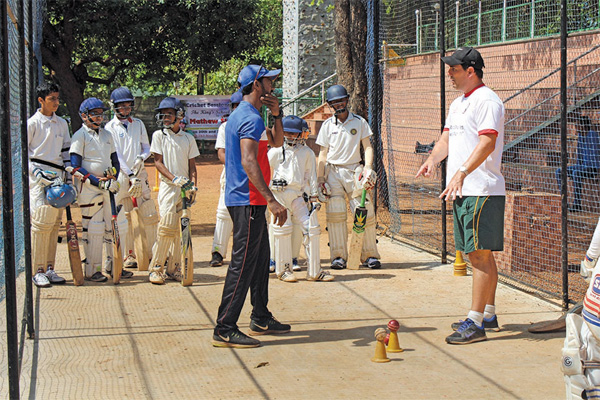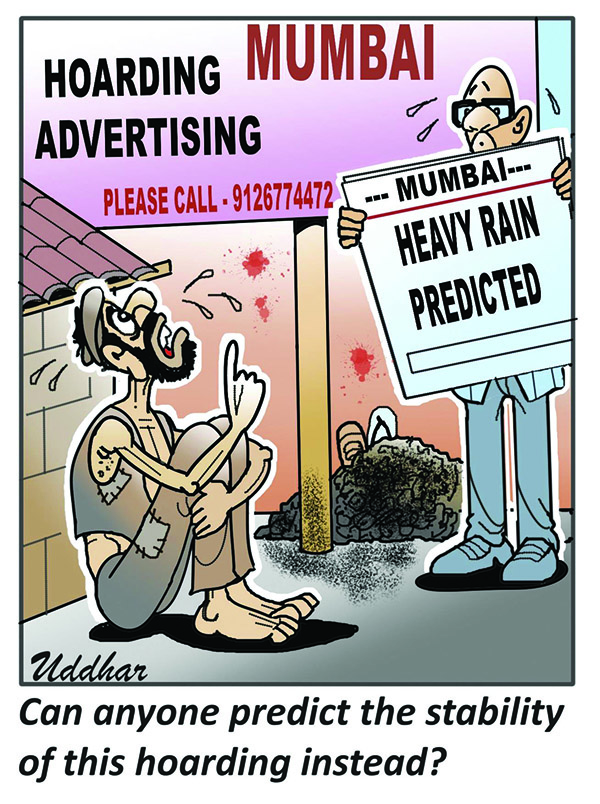22 Apr 2018 | 05:43am IST
How deep is Goa’s love for sports?
Kiwi cricketer Mathew Sinclair’s special coaching session for students of a private institution in Goa emphasised the initiative taken by certaininstitutions to encourage sports. But is this the general approach? Café questions
Neshwin Almeida
It’s a bright sunny summer day in April, and former New
Zealand batsman Mathew Sinclair is placing
season balls on cones, positioning them in the cricket nets, while the students
take their stance to practise under the watchful eyes of the Kiwi. The former
test great with two double hundreds on debut is at The King’s School to deliver
cricket coaching sessions.
Mathew explains how children are amazing listeners and the best
age group to work with in sports and how he never toured India with the New
Zealand squad but has come twice on coaching assignments with students.
“It’s really a nice experience to watch a former cricketer who’s
played 33 test matches and 54 one day internationals and speaks to you on how
to approach a bowler while batting. It instils a new level of confidence and I
must thank my school, The King’s School, for putting this coaching clinic
together for us,” explains a Class 10 student Ibtisam Sheikh, who recently
skippered her school team to the Presidential Cup Women’s Cricket Tournament win
and also toured Kerala for a state level cricket tournament.
The manner in which private institutions have been open to
bringing in former international sports personalities to motivate students and
give them a real life feel of competition and how to deal with expectationsis
at the highest level.
And this is not the first instance. Rahul Dravid similarly was
invited to ShardaMandir as Chief Guest for their annual day celebrations and he
spoke to the children on how patience brings rewards. The former world
acclaimed India Captain and test batsman, better known as the Wall, stated how
a Chinese bamboo is just a shoot for five years and then grows a full 80 metres
in 90 days.
Rahul Dravid was basically speaking about how he patiently
waited at the crease until he got the right opportunities. Coming from the
cricketer who scored over 22,000 runs in both formats of the game, this advice
meant a lot to the students.
Such interactions are endorsed by parents too. “It was
interesting listening to Mathew Sinclair train my child and even better was the
fact that the parents were allowed to be seated outside the cricket nets to
listen to what the NZ coach had to tell our children. Opportunities like these
are very rare for students,” states Sanjay Shahapurkar, whose son was part of
the cricket coaching facility.
Chowgule College’s golden jubilee celebration also held some
golden lessons. “I was once travelling by train to Kerala after I turned
professional and an elderly gentleman asked me what I did. I told him that I
make my living playing chess. He advised me that sports is not a rewarding
career.” This anecdote was cited by chess whiz ViswanathanAnand, while
addressing the students of Chowgule College. Anand went on to tell them that
this conversation was held after he won his first championship in Goa itself,
playing the sub-junior national championship.
“Anand’s speech inspires us students to never give up and how
opportunity is hard to come by but one has to carve one for themselves. It’s
different when someone so big comes down to your level and speaks to you in
your environment and comfort zone. Listening to a personality in your own
college is different from listening to someone over a video or YouTube link,”
explains Sweden Cardozo from Chowgule College, recalling Anand’s visit to Goa.
“We believe a child should grow in mind and body and giving
children mixed opportunities in sports and academics, especially a mix of
sports through coaching professionals and through sports infrastructure, allows
overall development of a child. Hence we invest in opportunities of such kind,”
explains The King’s School chairman, Melvin Pereira.
While private institutions are excelling in inspiring their
students, this unfortunately is not the general scenario. Historian and museum owner
Victor Gomes explains to us how Goa is a state with the most number of football
fields and the government is wanting to convert more and more agricultural
lands into football fields which are sadly underutilised.“These football fields
belong to communities, religious trusts or are owned by the panchayat and
remained unused through the day, while a few residents will play a game of
soccer on them in the evening or sometimes a few tournaments will be held. The
government needs to survey and study the schools around the ground, make a Rota
for their usage with these schools and their PE teachers and ensure that
children benefit from sports facilities. Maximum government run and semi
government aided schools have no sports infrastructure or open spaces and PE
classes are only on paper, while the grounds are empty across villages and
towns in Goa,” explains PandurangDessai, whose children study in a
Chinchinim-based school that has no sports facilities.
The
fact that sports and physical education has mostly been on paper and the fact
that schools push for academics while even removing sports from the curriculum
in many schools in Goa is what’s hurting the education system in Goa. A child’s
all-round development is possible only when academics and sports are balanced
and the former can be upped byapproaching more sports facilities to send their
coaches to Goa.

